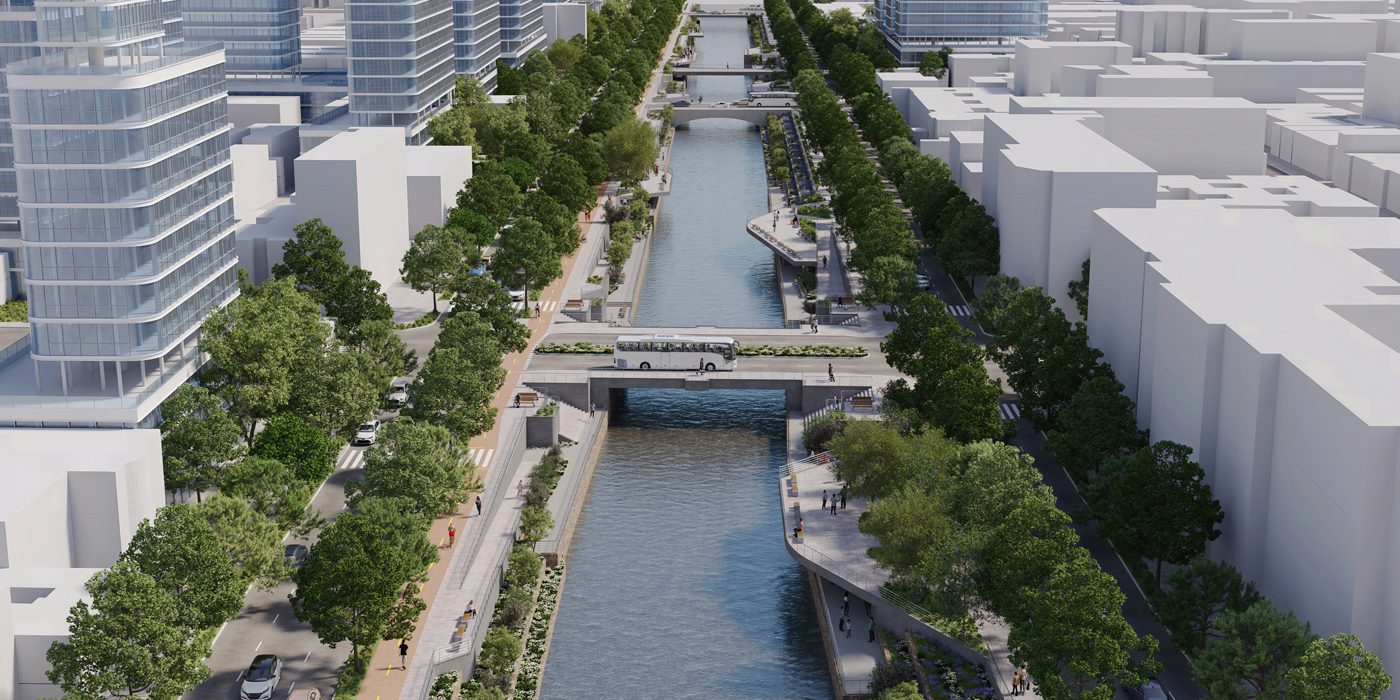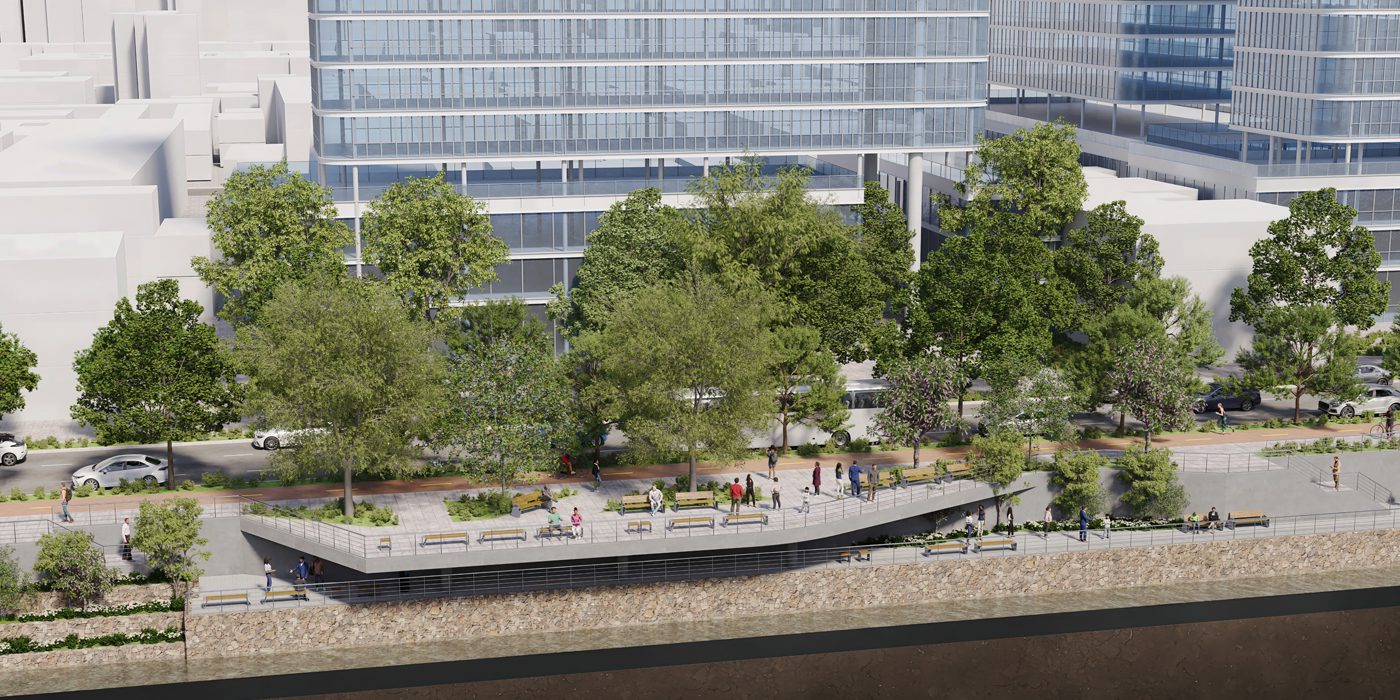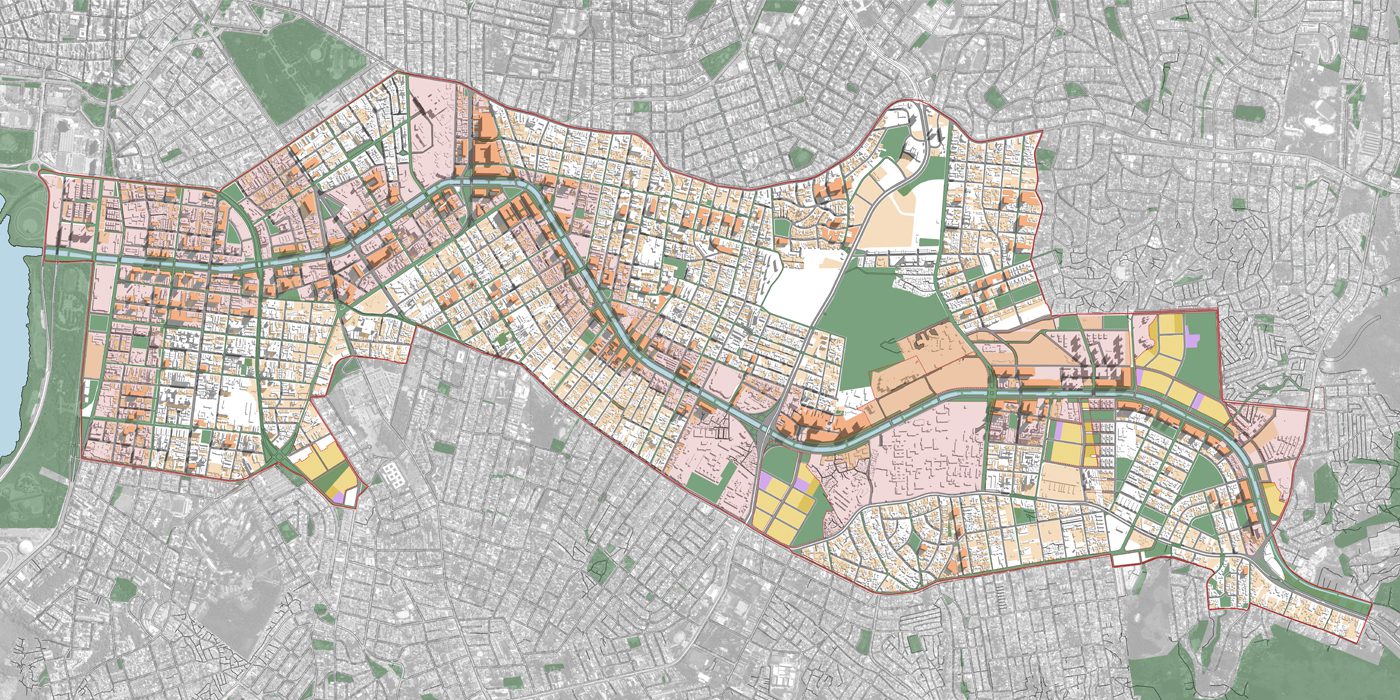Project implementation: Brazil
Project development: Brazil
Regenera Dilúvio Consortium – Profill Engineering and Environment, Consult Engineering and Assessments and Pezco Economics
The Consortium Urban Operation Regenera Dilúvio (Dilúvio Regenerates Urban Development) seeks to integrate urban development, environmental sustainability, and infrastructure, considering the impacts of recent climate events in Porto Alegre. This 25-year plan focused on the implementation of a linear park on the banks of the Arroio Dilúvio, a tributary of the Guaíba River, in Porto Alegre, Rio Grande do Sul.
The project was developed in response to a request from the Porto Alegre Department of Environment, Urbanism, and Sustainability (SMAMUS), which monitors and contributes to the studies. The project was developed by a consortium formed by the companies Profill Engenharia e Ambiente, Consult Engenharia e Avaliações, and Pezco Economics, with general coordination by architect and urban planner Marcelo Ignatios and urban design coordination by architect and urban planner Marlon Rubio Longo.
The OUC's structuring was explored across multiple work fronts, encompassing urban, environmental, urban mobility, economic, social, and demographic studies, and legal aspects, as well as a communication plan for the process, for public discussion. The project addresses solutions for drainage and sanitation issues, with the distribution of green spaces and rainwater drainage, improved mobility at multiple scales, as well as new facilities, the upgrading of precarious settlements, and the production of social housing.
The linear park was structured as an urban environmental corridor, integrated with a system of green areas and drainage infrastructure, to promote the restoration of tree-lined areas along the banks, encourage recreational uses in neighboring blocks, and connect squares and existing vegetation fragments. These facilities are implemented across the entire territory, distributing the reserve and increasing soil infiltration, combining traditional infrastructure (gray networks) with nature-based solutions (green and blue networks).
The OUC Regenera Dilúvio project foresees the possibility of distributed densification in the territory, which, in an optimistic scenario, would reach approximately 60,000 additional residents in new vertical developments within 25 years. Growth and the attraction of new jobs are boosted by infrastructure and environmental improvements to the area, partly financed by the sale of Certificates of Additional Construction Potential. With an expected revenue of R$ 1.46 billion in current values, the certificates correspond to approximately 4 million m² of new built area, obtained through the densification of 65 hectares of land.
In addition to the planned investment program, which totals approximately R$1.76 billion by 2050 and includes other sources of funding, incentive strategies were planned for the creation and strengthening of central areas in the territory, consolidating a new axis of concentration for urban densification and development in Porto Alegre.




